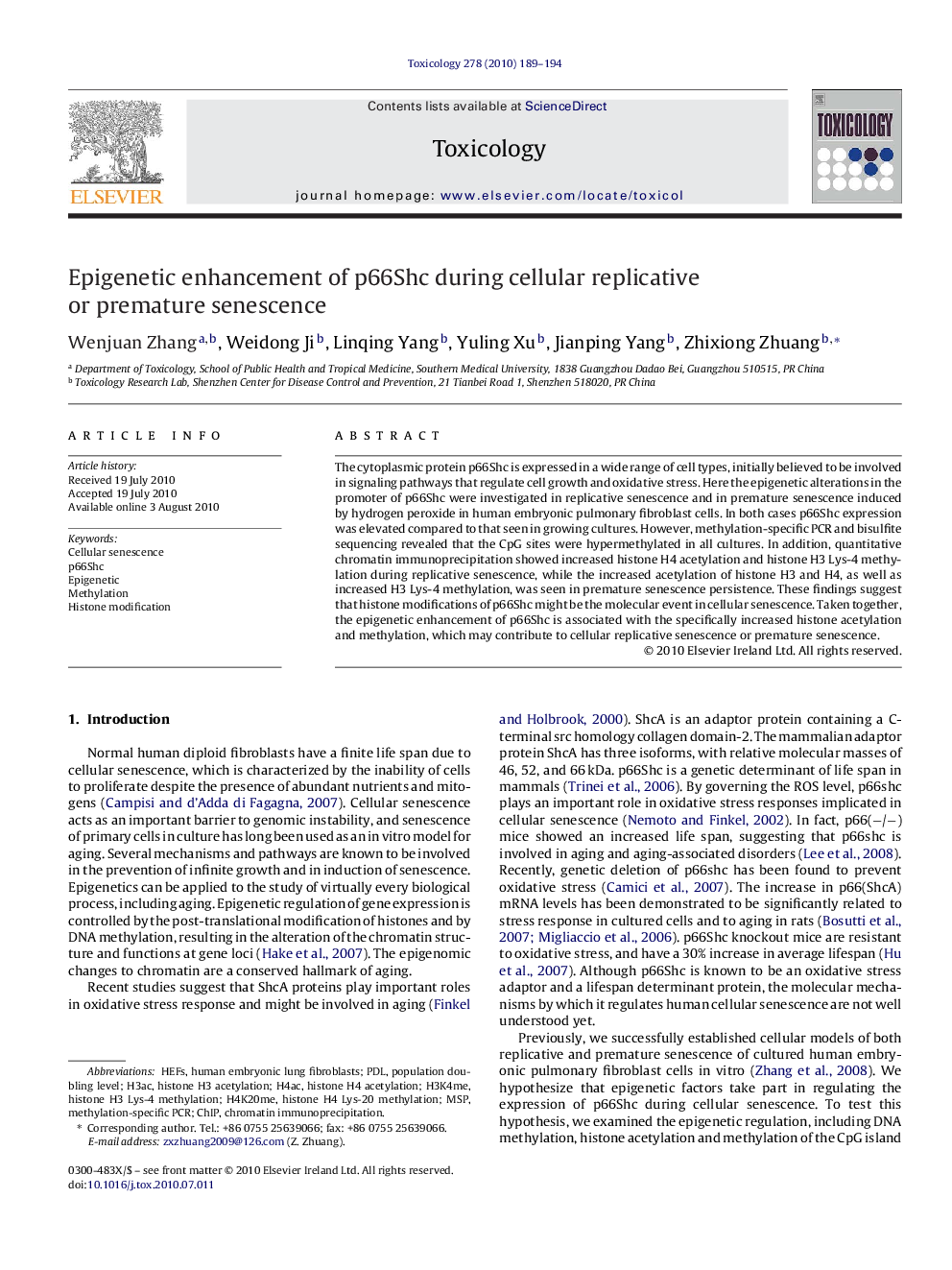| Article ID | Journal | Published Year | Pages | File Type |
|---|---|---|---|---|
| 2596121 | Toxicology | 2010 | 6 Pages |
The cytoplasmic protein p66Shc is expressed in a wide range of cell types, initially believed to be involved in signaling pathways that regulate cell growth and oxidative stress. Here the epigenetic alterations in the promoter of p66Shc were investigated in replicative senescence and in premature senescence induced by hydrogen peroxide in human embryonic pulmonary fibroblast cells. In both cases p66Shc expression was elevated compared to that seen in growing cultures. However, methylation-specific PCR and bisulfite sequencing revealed that the CpG sites were hypermethylated in all cultures. In addition, quantitative chromatin immunoprecipitation showed increased histone H4 acetylation and histone H3 Lys-4 methylation during replicative senescence, while the increased acetylation of histone H3 and H4, as well as increased H3 Lys-4 methylation, was seen in premature senescence persistence. These findings suggest that histone modifications of p66Shc might be the molecular event in cellular senescence. Taken together, the epigenetic enhancement of p66Shc is associated with the specifically increased histone acetylation and methylation, which may contribute to cellular replicative senescence or premature senescence.
